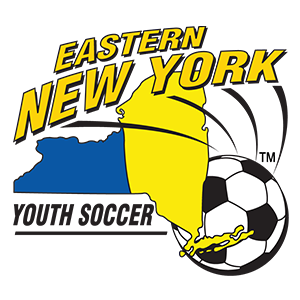By Tim Bradbury, Director of Coaching Instruction, Eastern New York Youth Soccer Association
As I have travelled around the US and viewed how soccer is run in many different Regions, I have become increasingly aware of how unique each situation can be. Within Eastern New York, many areas have fortunately or unfortunately become dominated at the Under-12 age group by teams that are primarily run by trainers. The reasons for this choice range from “I think they deserved someone with more knowledge” to “No one wanted to do it or had the time." As I have written about before, if a detailed search was done for a coach who:
1) Confirmed to have the appropriate background check.
2) Has the appropriate coaching license
3) Has some form of first aid experience or system for the care of injuries
4) Has some experience and knowledge of the game and trends in education.
5) Is within the financial means of the group to hire
6) Has a holistic vison of player development and the game – not many of the players will become polished professionals but they all will face adversity and challenges in adult life that sports can help prepare them to deal with.
7) Has a good understanding of the development vs. win at all costs debate
It is hard to think of a solid reason why a team that has found an individual that meets all the criteria above should not hire a trainer. In fact, to help clubs and coaches find suitably qualified trainers, ENYYSA introduced its trainer certification program and a list of verified and qualified coaches can be found on our website at www.enysoccer.com
Unfortunately, and perhaps more disturbingly, are the huge number of clubs and teams that now seek to hire “professional“ coaches to work with the U5-U10 age groups. I have grown increasingly concerned as I have travelled around the state and seen hundreds of young players coached in inappropriate and damaging soccer environments. The attitude of many seems to be the younger ones are okay with anything, after all they can’t play the real game. We need to focus our efforts on the travel players. Nothing could be further from the truth.
The thousands of players in this group have definite, specific and VITAL needs that must be met. The quality of their first footsteps in the game will have a huge impact on both how long they play and how skillful and creative they become. Clubs and coaches must work diligently to ensure these player are given environments to train in that are:
• Immense fun
• Full of game play and activities where the kids make the decisions
• Are developmentally appropriate. Forgive the rant but it is impossible to increase the lung capacity of pre-pubescent kids – so stop the laps. They also do not need to formally stretch so use the time to play physical literacy games, and they hate standing in lines and doing drills.
• They need environments where they can solve problems, on their own, in pairs and then in small groups (yes, they should be allowed to talk)
• They need to sort out social issues on their own – it went in or it didn’t, they will grow by sorting it out.
• They value and need skill development (skill is learned in the context of the game and the basis of it is making a decision on what they see, so dribbling around cones does not help)
What should be apparent reading the above list is that this is not an age range who should have anyone with accent or who once kicked a ball at college placed in front of them. It is not an age group that can be left to chance. Clubs who get it right with these grass roots players will be the clubs that have players play for life, deeply love the game and one day will come back to coach the next generation of players.
I urge all clubs who use trainers in these vital age groups to spend time ensuring that your hire coaches or find parent volunteers who can create the environments noted above. In doing so, you need to ensure that those coaches charged with teaching these age groups meet the criteria below:
1. Have a genuine desire and love for coaching younger players (too many professional coaches view working with younger players as a chore or punishment)
2. Confirmed to have the appropriate background check.
3. Have an age appropriate and developmentally appropriate coaching philosophy.
4. Have the developmentally appropriate licenses, diplomas or teaching degrees that deal with the age groups they work with.
5. Have some form of first aid experience or system for the care of injuries
6. Have some knowledge of the physical, cognitive and psychosocial characteristics of the children in front of them.
7. Understand how the stage of development in the three areas above impacts effective teaching strategies that can be used and skills that can be mastered.
8. Have a holistic vision of player development and the game – not many of the players will become polished professionals but they all will face adversity and challenges in adult life that sports can help prepare them to deal with.
9. Is able and willing to be an animated, fun, fair, disciplined quiz master as required.

